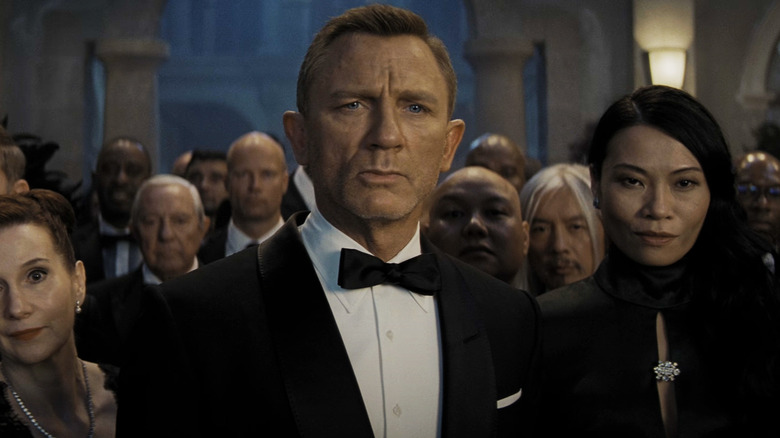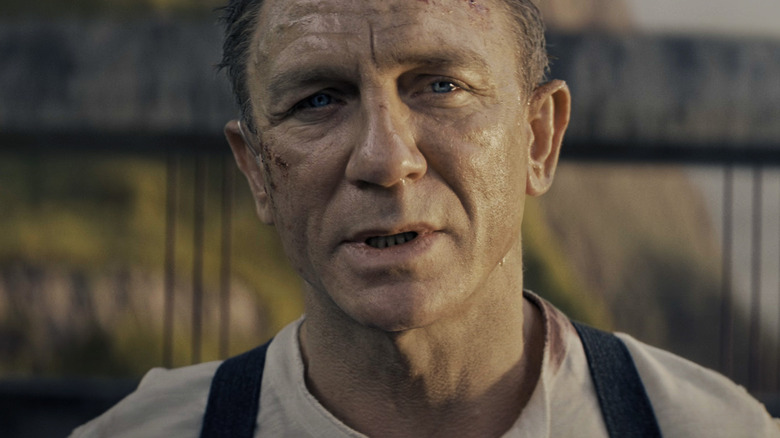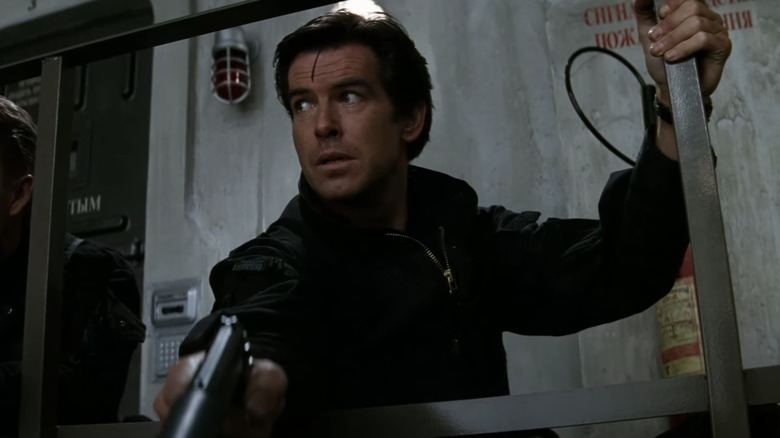James Bond Requirements Explained By 007 Casting Director
James Bond is now owned by Amazon, and that puts the beloved franchise in truly uncharted territory. When the announcement was first made, fans were understandably wary. But Amazon has since hired the perfect director for James Bond 26 in Denis Villeneuve, the French Canadian visionary who has more than proved his worth over the last decade. He'll now have a say in who dons the tux and becomes the seventh official James Bond actor, a major responsibility that's likely not lost on the self-confessed Bond superfan. He will, of course, have to ensure that his Amazon overlords are happy with his choice, but one person who almost certainly won't be involved in this crucial process is Debbie McWilliams, who for more than 40 years served as casting director on the James Bond saga.
Beginning in 1981, McWilliams has been guiding the casting process for one of the biggest blockbuster franchises in cinema, helping to select actors for Bond villains, Bond "girls," and supporting characters. But her biggest responsibility was casting 007 himself, which during her tenure she did three times by contributing to the casting of Timothy Dalton, Pierce Brosnan, and Daniel Craig. Alongside former Bond custodians and producers Barbara Broccoli and Michael G. Wilson, McWilliams was responsible for selecting the James Bond actors we all now know as major stars.
Now, with Amazon calling the shots, that casting process will look a lot different, but that doesn't mean McWilliams doesn't have some advice for her successors. The casting director, who is now retired, gave the Radio Times an inside look at the typical 007 casting process, discussing the "back and forth and discussion" that would occur whenever a new actor was put forward. "I can't impose my will too strongly — although I try to," she said, before confirming that it was ultimately Broccoli and Wilson that had "the final say." Without them on board, Amazon and Villeneuve would do well to pay attention to McWilliams' experience and her requirements for casting Bond.
Bond had to match the movie
Since Daniel Craig departed the 007 franchise in an ignominious manner with the divisive "No Time to Die," rumors have predictably begun swirling about who will take over. The list of actors who could replace Craig as James Bond is extensive, and includes young up-and-comers such as Paul Mescal and Rege-Jean Page alongside established stars such as Aaron Taylor-Johnson and Idris Elba. Even former Bond star Pierce Brosnan was floated as a potential replacement, which isn't all that bad an idea considering his run as 007 was a mixed bag, and he deserves a second chance.
Thus far, Debbie McWilliams has been amused by the rumors, with the former casting director telling the Radio Times they make her "die laughing." While she likely has no insight into who Denis Villeneuve and Amazon have in mind for the role, she does at least have a significant insight into how the casting process has played out over the past almost half-century. There is "no set process," she told the Radio Times, before going on to explain that it always depended very much on the vision of the director and producers.
2006's "Casino Royale" was, for example, a big reinvention for the Bond saga, which gave England's greatest spy a "more contemporary" tone and turned the character into "a bit more of a kind of menace," as McWilliams put it. "You know, let's face it," she continued, "as good as Pierce was, he's not a menace, whereas Daniel is. You feel a very strong presence in the room with him, and I think that that is incredibly important." She added:
"It's the best person for the job and one year it might be one person, one year somebody else — you can't really predict. There isn't an algebraic thing where we say, 'Right, we have this and we have that, and it equals that'. It just doesn't work like that."
But even while each new era of Bond demands a new version of the spy, there are, it seems, some standard guidelines that McWilliams and her collaborators tried to follow.
Bond can never be boring
James Bond lends himself to reinvention, and has done so ever since Sean Connery and "Dr. No" director Terrence Young took author Ian Fleming's character and turned him into a more glibly funny bon vivant. It's for that reason that Bond would have likely failed without Young impressing his urbane sophistication on the working-class Connery. Ever since, we've seen the character reinvented multiple times through successive generations of Bond actors. But even with the character's malleability, Debbie McWilliams always had some rules she followed.
"[Bond] has to look like a regular guy," she told the Radio Times. "You can't be Dwayne Johnson. He has to have a great physique — it demands a high level of fitness — but he shouldn't stand out in any situation." Physicality isn't enough on its own, either. The performer also has to be "a brilliant actor," and thus far, those "brilliant actors" have all been a little more mature than some of the younger actors currently in the running. "We did look at a lot of younger actors, and I just don't think they had the gravitas," explained McWilliams. "They didn't have the experience, they didn't have the mental capacity to take it on, because it's not just the part they're taking on, it's a massive responsibility." Even with this in mind, it doesn't necessarily mean McWilliams and the producers were always looking for established stars, with the casting director adding that it was a "gift" to not have to find a well-known face to portray Bond.
Though there were clearly guidelines that McWilliams followed, then, she also admitted that "there isn't an absolute ideal mould" for Bond, with the casting director adding, "There never would be and never should be, because otherwise, it just becomes boring." That's a good rule to keep in mind if you're Amazon. Making Bond boring might be the worst thing the new owners could do with their esteemed IP. Though with Villeneuve on board, that seems unlikely.


